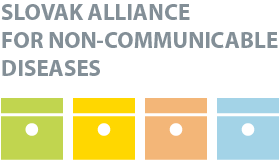—
HPI Network > HPI - Health Policy Institute > Health System in Slovakia > 5. Provision of services > 5.4 Inpatient care
5.4 Inpatient care
Thursday, 05. May 2011, 0:59 — HPI
| << PREVIOUS
5.3 Ambulatory care |
Introduction – Organization – Financing – Resources – Provision – Reforms – Assessment – Conclusions – Appendices |
NEXT >>
5.5 Emergency care |
In Slovakia, inpatient care is defined as care for patients who require health care for more than 24 hours. Hospitals are divided into general hospitals (including university hospitals) and specialized hospitals, depending on the services they offer. Hospitals also have an ambulatory component, in which hospital-based specialists provide specialized ambulatory care. Inpatient health care facilities include sanatoriums, hospices, day-care centres, natural healing spas and balneotherapy institutions. The Ministry of Health issues permits for specialized hospitals and biomedical research institutes to operate. Self-governing regions issue permits for all other health care facilities.
Mixed ownership of inpatient care providers is common, with the state owning a significant share. Until 2003, there were only three private hospitals while the rest were contributory organizations. After the transfer of ownership from state to local governments, the majority of local governments decided to change the legal form of the hospitals to either a commercial company (for example a joint stock company) or a non-profit-making organization, or they moved into private ownership. The largest hospitals, including university hospitals, remained state owned. The majority of these state-owned hospitals are still contributory organizations, with the exception of five hospitals, which were transformed after the 2004 health reform into joint stock companies with 100% of the shares owned by the state. The transformation of hospitals was discontinued in 2006 but resumed again in 2011.
The hospital management is only held accountable by its owner(s). They are responsible for the management of hospitals and they are rewarded depending on financial results. In a state-owned hospital, however, directors are directly appointed and dismissed by the Minister of Health, making their position vulnerable to political opportunism. Shared ownership between providers and health insurance companies is not legally prohibited. On the contrary, the law allows for vertical integration. Private health insurance companies Apollo and Dôvera, which merged in 2010, are linked with several inpatient facilities and intend to increase the number of such shared facilities.
Of the inhabitants of Slovakia, 37% can access a general hospital near their place of residence. Inpatient care is accessible in all medical specialties, including neurology and traumatology/orthopaedics, within 45 minutes by car. Combined with the 15 minutes distance to emergency medical service (see section 5.5), this makes urgent hospital care accessible within 60 minutes (HPI, 2006).
Cooperation between ambulatory and inpatient care is limited to an exchange of health records. This is most effective when the hospital-based specialist is located either in the ambulatory section of the hospital or in his or her private office. Lack of trust in laboratory results from other health care facilities often results in physicians ordering the same diagnostic examination in their institution of affiliation. Cooperation with social care institutions is complicated due to an insufficient number of chronic beds, as well as the fact that social care institutions belong to the social sector and are the responsibility of the Ministry of Social Affairs. The inclusion of home nursing care services in SHI in 2004, which was meant as a substitute for inpatient care, has enabled the development of agencies that provide nursing care, rehabilitation and day-care services.
News
The amendment of the Decree on emergency medical service
Health insurance companies returned over 400 thousand €
The HCSA received 1,647 complaints last year
A half million people will earn more
Most of public limited companies ended in the black
Debt of hospitals on premiums has grown to nearly € 105 MM
Slovak health care may miss € 250 million next year
Profits of HIC amounted to € 69 mil. last year
Owners of Dôvera paid out money but did not paid taxes
Like us on Facebook!
Our analyses
- 10 Years of Health Care Reform
- New University Hospital in Bratislava
- Understanding informal patient payments in Kosovo’s healthcare system
- Analysis of waiting times 2013
- Health Policy Basic Frameworks 2014-2016
- Analysis of informal payments in the health sector in Slovakia
- Serbia: Brief health system review
developed by enscope, s.r.o.
